Top image: Tonny Tran on Unsplash. Edits by Julian Wong.
No, it wasn’t because of mercury retrograde or the lack of public holidays. If July felt like being slowly and mercilessly pressed through a coffee grinder, chances are it’s because of mid-year burnout.
With still another half of 2019 to go, many of us already feel like we’re running on empty—and I’d argue that this is precisely because, not although, we’re only at the halfway mark.
Just like the sixth kilometre of a 10km run or the first hour back at work after lunch, the mid-point of any endeavour is when it starts getting particularly tough. You’re far enough into things for them to weigh on you, but still so far from the end that the Lee siblings have a better chance of making up than you getting there in one piece.
In this vein, while burnout might be a year-round phenomenon—I wrote about it around the end of last year, as did two of my colleagues more recently—there are several reasons why you might be feeling particularly ragged right about now.
The relentless social (and financial) demands of wedding season. Post-holiday comedown and the ensuing flu bug. Your soul evaporating in the heat. Seven months’ accumulated work stress, sleep debt, unfinished life admin, and general anxiety bearing down on you like the fist of an angry god.
And, as if that weren’t enough, the grim realisation that you’ve squandered the first half of 2019, but are no closer to achieving those New Year’s resolutions.
I’m being flip about this, but quite honestly, over at Rice HQ, our brains are all fried; trying to ‘create content’ and ‘be insightful’ day in, day out, will do that to you. (Five seconds ago, as I was desperately searching for words in the bottom of my coffee mug, Pan Jie huffed, looked up at the ceiling, and exclaimed, ‘“FUCK THIS.” It is 10:15 AM on a Monday morning.) Personally, I’m convinced the only way I’ll make it to 2020 is if someone carries me across in a stretcher.
In an attempt to forestall my death by daily life, I’ve been turning to what I always do when at a particularly low ebb: books.
Reading, ever since I was a small child, has been Panadol for my soul. It knocks my brain off its hamster wheel, ironically, by giving it something else to think about; it helps me leave myself for a while, and return calmer, more centred, and more able to face whatever awaits.
This last month, I’ve been checking out audiobooks on Storytel, intrigued by the idea of being read to rather than doing the actual reading per se. The natural extension of this was to look for books that would soothe my fractious nerves—if not to cure my burnout or show me a way forward, then at least to make it more bearable.
Here, then, are my recommendations: five books to help you beat the mid-year blues.
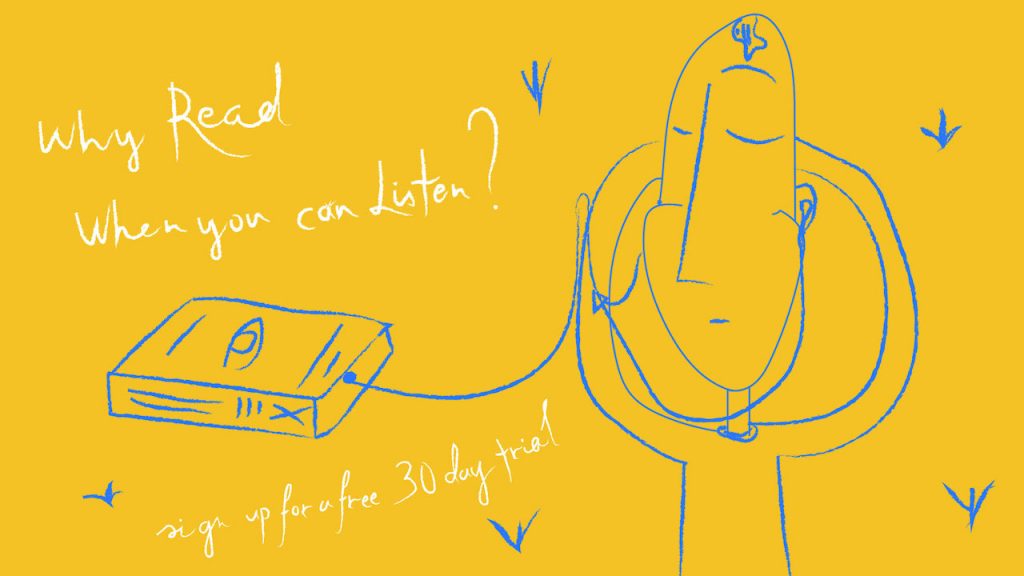
Rice readers get a 30-day free trial, so download their app to get started.
If you’ve been surviving on 5 hours a night:
Why We Sleep: The New Science of Sleep and Dreams by Matthew Walker
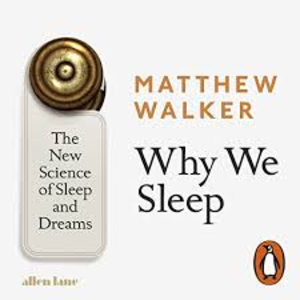
I’m not actually exaggerating. In one particularly memorable line, he describes getting too little sleep as “a slow form of self-euthanasia”.
It’s a sobering listen, but an entertaining one, made easier by Walker’s accessible, surprisingly exuberant style. Walker, a neuroscientist at the University of California-Berkeley, knows what he’s on about, and the book is full of well-researched truth bombs about why sleep matters. He also explores some of the cultural practices contributing to our chronic sleep deficiency, such as checking our email ‘just one last time’ after midnight (guilty), early school start times, and valorising figures who get by on very little sleep.
It’s too soon to tell if I’ve been jolted out of my complacency, but if you know you need a wake-up call about your sleeping habits, this is the book for you.
If life’s been turbulent, and you’re struggling to keep up:
Brooklyn by Colm Toibin
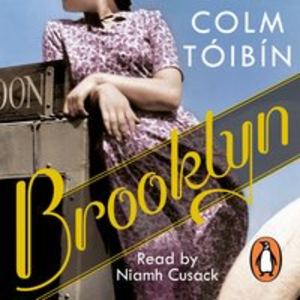
This is a book for those times.
The plot of Brooklyn is simple. In the 1950s, Eilish Lacey leaves her stunted hometown in Ireland to make a better life in Brooklyn, New York. After the first crippling waves of homesickness subside, she enrolls in accounting school, gets a job at a fancy department store, and meets her first boyfriend. Then a family tragedy calls her home, and she has to choose between the life she left behind but always thought she’d love, and the one she had to learn to love, but has to make for herself.
That’s basically it. There is no high drama, no sweeping proclamations of youthful angst. But if you’ve been feeling low, lonely, or unsure if the choices you’ve made will get you where you want to go, you will hear yourself in Eilish’s quiet introspections, read in a lilting Irish accent. It is not an uplifting book, not exactly, but it will remind you that even the foreign will, with time, become familiar, and that time has a way of changing us before we realise these changes ourselves. If life’s been giving you a hard time lately, there is a lot of comfort to be drawn from this.
Best listened to straight after work, while lying on your bed, still in your clothes from the day, for maximum reflective potential.
If you need to slow down from always being in a rush:
Delayed Response: The Art of Waiting from the Ancient to the Instant World by Jason Farman
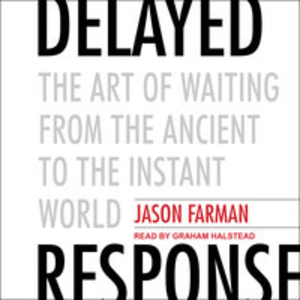
Or, at the other end of the spectrum, you shoot off an email and immediately go to pieces. You tap your pen, jiggle your foot, check your phone every two minutes. Every passing minute sends your blood pressure a little higher. Why haven’t they replied yet?!?!?!
Waiting makes most of us collapse with anxiety, but ebbs and flows have always been a natural part of communication. By tracing the development of various communication technologies, Farman explores how wait times, despite humans’ neverending efforts to reduce them to zero, can actually be an antidote to the scourge of productivity.
As a cultural history of communication wait times, Farman takes us to some unexpected places, from subterranean New York in the 1800s (where tubes were installed beneath the streets to basically help blow mail between post offices) to an applied-physics lab. These are all fascinating in their own right, but the book’s best passages come where Farman dissects the cultural stigma around waiting.
Two of these stand out. One is where Farman unpacks how, in equating waiting with wasted time, asking others to wait grew into a kind of moral failure. The other is how he exposes the hollowness of our need for speed: expecting that our hunger will be satiated when those updates finish loading or that page stops buffering—except that this hit only lasts till the next to-do. If you’ve been running yourself into the ground trying to do more, in less time, Delayed Response will remind you that impatience is a beast which feeds on itself.
If you need a tonic for the soul:
The Poetry Pharmacy: Tried-and-True Prescriptions for the Heart, Mind, and Soul, collected by William Sieghart
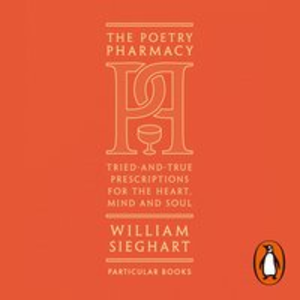
This quote from F. Scott Fitzgerald, author of The Great Gatsby, is one of my favourites: it perfectly describes why I find reading so comforting. There are few things so necessary, and so healing, as feeling understood, and literature has an uncanny knack for cutting straight through your defences to the core of whatever ails you, to soothe an aching heart or calm a frazzled spirit.
Poetry has a rep for being atas or incomprehensible, which is a shame because it is so often delightful, compassionate, and inspirational. I can’t count the number of times I’ve stumbled on a poem and felt instantly seen. Sieghart understands this, which is why he has compiled this anthology, amassed from years of prescribing poems for various spiritual ailments—a bit like a literary dispensary for the soul. Organised by topic, there are poems for virtually every aspect of the human condition.
Constantly beating yourself up? Try Mary Oliver’s classic, Wild Geese: “You do not have to be good/ You do not have to walk on your knees/ for a hundred miles through the desert repenting.”
Feeling guilty about being unable to just be in the moment? Give Billy Collins’ The Present a listen: “Much has been said about being in the present./ It’s the place to be, according to the gurus,/ like the latest club on the downtown scene,/ but no one, it seems, is able to give you directions.”
Grieving the end of a relationship? There’s Jack Gilbert’s Failing and Flying (also a personal favourite of mine): “I believe Icarus was not failing as he fell,/ but just coming to the end of his triumph.”
Give this book a chance. Your heart will feel better for it.
If you’re addicted to comparing yourself to others:
Status Anxiety by Alain de Botton
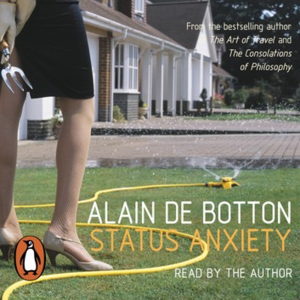
Status Anxiety, like virtually all of de Botton’s other books, attempts to answer the question: what makes a good and meaningful life, and what are the things which keep us from it? In this particular volume, he explores how our priorities got to be so massively distorted, and why we’re never happy with where we are, via both causes (meritocracy, lovelessness, snobbery) to solutions (politics, religion, art).
Like all philosophers, de Botton resists giving easy answers, perhaps because there are none to be had. As such, this is a less obviously practical book (in the style of his The Consolations of Philosophy) than a Western intellectual history of insecurity. This being said, it’s impossible to read this as a Singaporean and not find it terrifyingly relatable.
If you’ve ever lain awake at night, floating in a sea of ennui, wondering what it’s all for while shredding yourself for not doing enough, listen to this. It might not help you refuel for the rest of the ride so much as question why you started it in the first place — and that, perhaps, is the best way to beat burnout for good.
Rice readers get a 30-day free trial, so download their app to get started, and check out over 110,000 titles they have available for streaming or download.
This story was sponsored by Storytel.
Tell us how you survived July at community@ricemedia.co .







